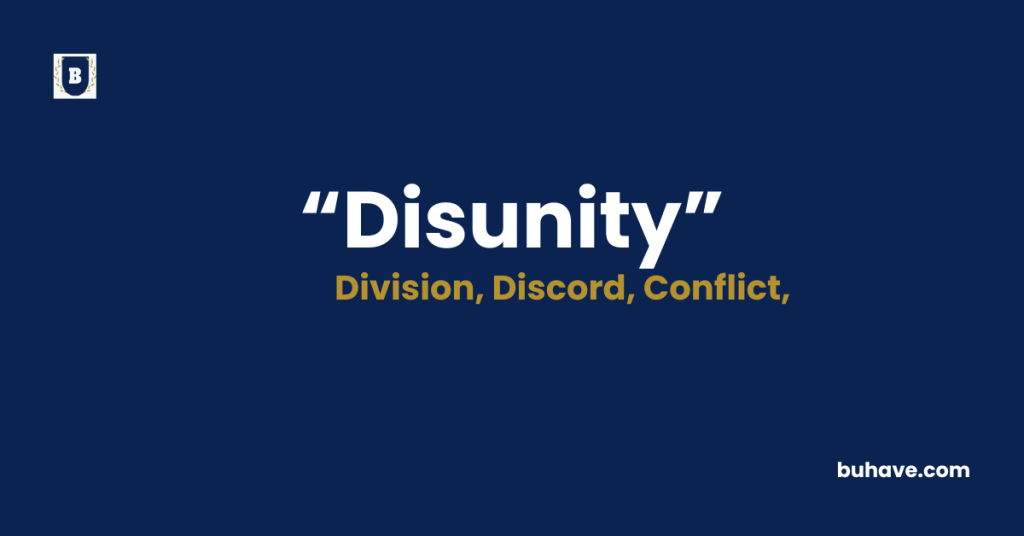The word ‘Disunity’ (Noun) refers to a lack of harmony, agreement, or cohesion among individuals or groups. In this guide, you’ll explore the full meaning, definition, origin, examples, synonyms, antonyms, and frequently asked questions about the word ‘Disunity’.
Disunity Explained in Depth
A complete and detailed guide to the word ‘Disunity’ including meaning, definition, examples, etymology, synonyms, and antonyms.
Meanings of Disunity
Disunity means the absence of unity or agreement, often resulting in conflict, division, or fragmentation. It typically describes situations where individuals, teams, or communities are not aligned in goals, beliefs, or actions, leading to tension or inefficiency.
Definition
Disunity is defined as a state of discord or division in a group, organization, or society, where cooperation and mutual understanding are missing or weakened.
Etymology
The word “disunity” comes from the prefix dis-, meaning “apart” or “lack of,” combined with “unity,” which derives from the Latin unitas, meaning “oneness” or “togetherness.” The term emphasizes the breakdown or absence of collective cohesion.
Example Sentences
- The political party suffered from internal disunity that weakened its influence.
- Disunity among the team members led to the project’s failure.
- National disunity can hinder progress and create widespread unrest.
- Efforts were made to overcome disunity and promote cooperation within the community.
Disunity Synonyms
- Division
- Discord
- Dissension
- Conflict
- Disagreement
- Separation
- Friction
- Schism
- Disruption
- Disconnection
Disunity Antonyms
- Unity
- Harmony
- Agreement
- Cooperation
- Solidarity
- Alliance
- Unison
- Concord
- Collaboration
- Integration
FAQs about Disunity
Here are some frequently asked questions (FAQs) about the word “Disunity”
1. Is disunity always harmful?
While disunity often leads to conflict or inefficiency, in some cases, it can prompt necessary discussions or reforms by exposing problems within a group.
2. What causes disunity?
Common causes include differences in beliefs, interests, goals, poor communication, leadership issues, and lack of trust or respect.
3. How can disunity be resolved?
Disunity can be addressed through open dialogue, mediation, shared goals, mutual respect, and inclusive decision-making processes.
4. Can disunity exist in families or teams?
Yes, disunity can affect any group, including families, work teams, organizations, or entire nations when cohesion breaks down.
5. What is the opposite of disunity?
The opposite of disunity is unity, which reflects togetherness, agreement, and a shared sense of purpose or identity.

















